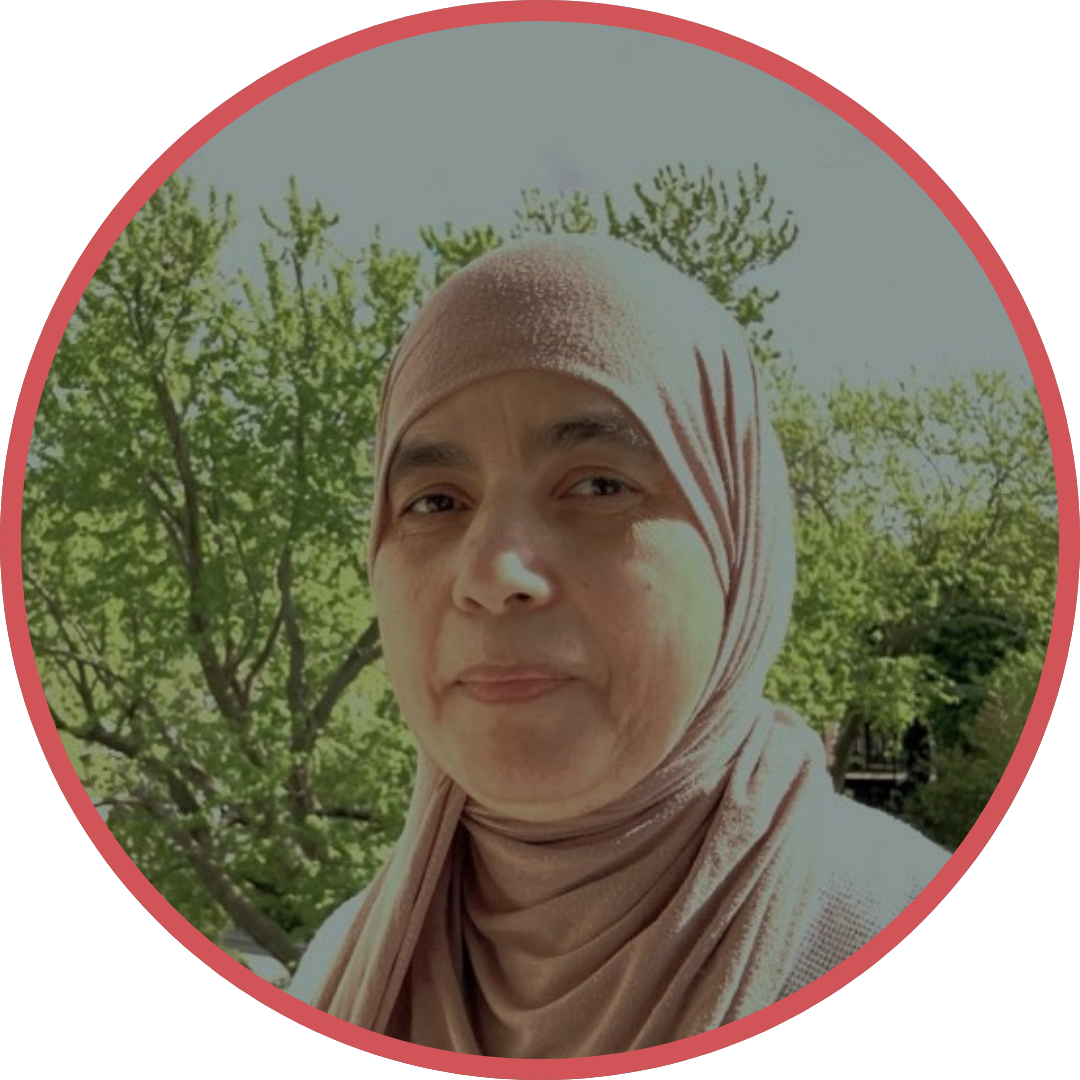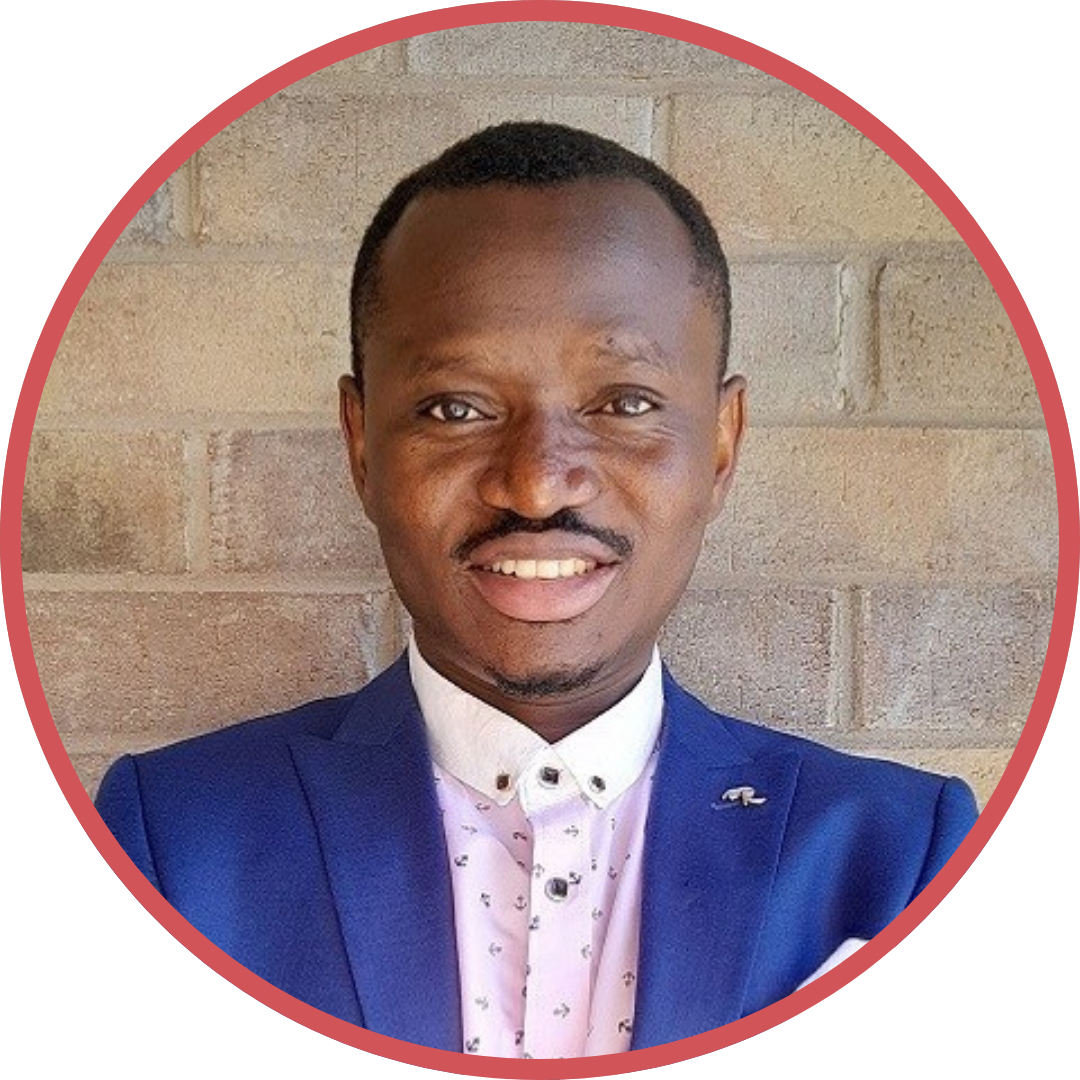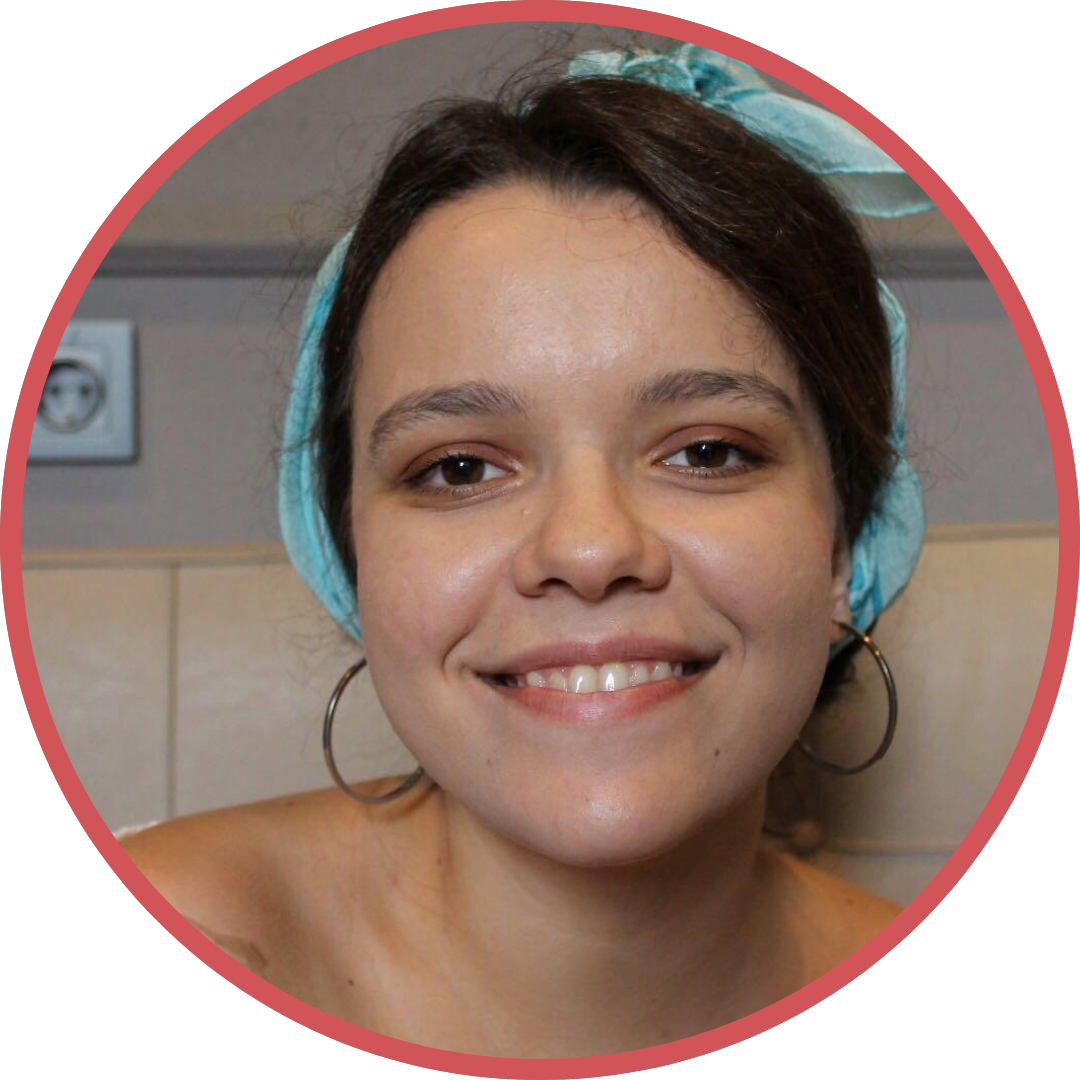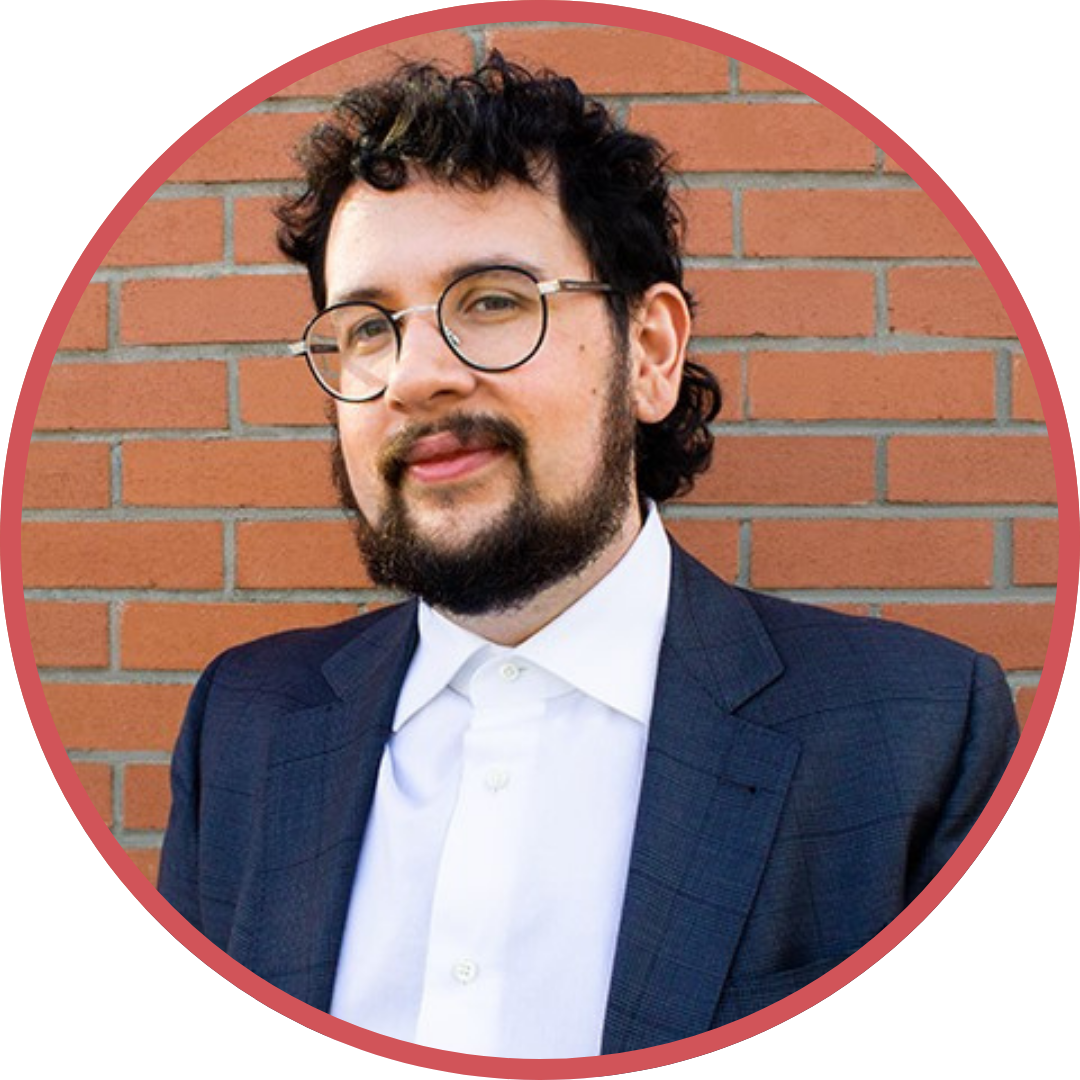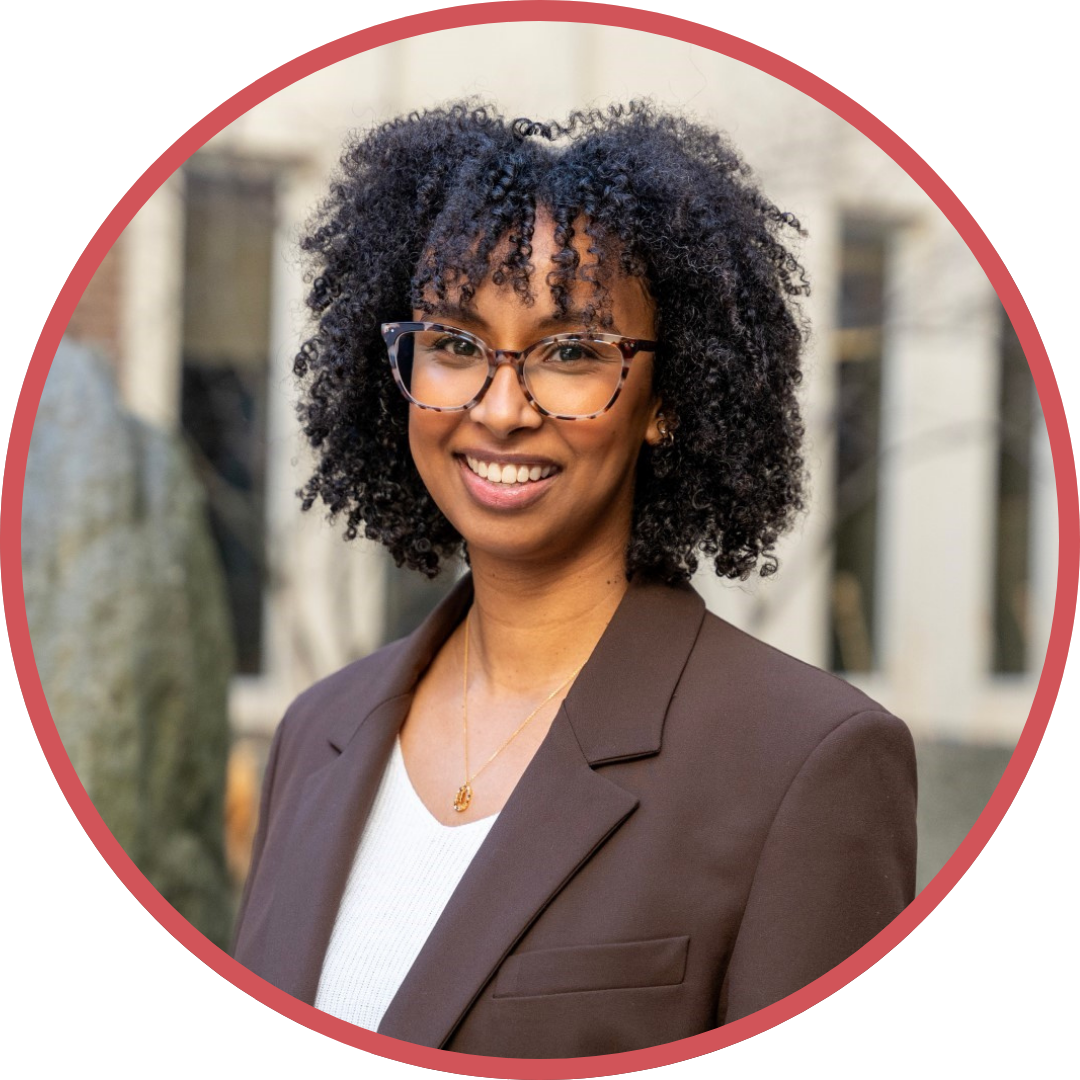The sixth cohort of the Population Analytics in an Aging Society Training Program is composed of 20 accomplished Fellows who were competitively selected from CAnD3’s partner higher education institutions. The new cohort comes from a wide range of academic and professional backgrounds, including sociology, economics, public health, demography, and political science. This year’s cohort includes 17 PhD students, and 3 Master’s students, all bringing diverse disciplinary expertise, from biochemistry and gerontology to urban sociology and global health. Meet them here!
|
|
Rosario Aronica (he/him/his)Current degree: PhD student in Population Health at the University of Oxford Previous degree: Medical Doctor in Medicine and Surgery at the Campus Bio Medico, University of Rome Read MoreRosario is a PhD student in Population Health at the University of Oxford, where he investigates the role of sleep in individuals at clinical high risk for psychosis. His research examines how sleep can predict clinical outcomes and inform the development of targeted, innovative treatment strategies. Trained as a medical doctor and psychiatrist, Rosario brings a deep clinical understanding to his academic work. He is particularly passionate about precision psychiatry and the integration of data-driven methods into mental health care. His goal is to bridge the gap between research and clinical practice to improve early detection and intervention strategies for severe mental health conditions, ultimately contributing to more effective and personalised care. |
|
|
Claudie Audet (she/her/hers)Current degree: PhD student in Health Sciences Research, Université du Québec en Abitibi-Témiscamingue. Previous Degree: Master’s in Health Sciences Research, Université du Québec en Abitibi-Témiscamingue; Bachelor of social work, Université Laval Read MoreClaudie Audet is a PhD student in health sciences research and a research assistant for the Institutional Research Chair in Chronic Pain Epidemiology (Université du Québec en Abitibi-Témiscamingue, Rouyn-Noranda, Canada). She holds a bachelor’s degree in social work (Université Laval, Québec, Canada) and a master’s degree in health sciences research (Université du Québec en Abitibi-Témiscamingue, Rouyn-Noranda, Canada). After earning her bachelor’s degree in 2013, Claudie held positions as a social worker in various practice settings such as youth protection, the prison system, and home support services. After more than ten years in clinical practice, she shifted her focus toward health sciences research. Since then, her studies have mainly focused on chronic pain treatments. She is particularly interested in the use of cannabis for pain management, as well as the quality of care provided for chronic pain management. As part of the CAnD3 training program, she hopes to deepen her knowledge of various statistical methods and collaborate with individuals from diverse professional backgrounds. She also aims to deepen her understanding of population aging—especially its impact on chronic pain—and how data science can inform decision-making and policy. Email Claudie at claudie.audet [at] uqat.ca and connect with her on LinkedIn and BlueSky
|
|
|
Minheng Chen (he/him/his)Current degree: PhD student in Sociology, The University of British Columbia Previous degree: B.A. in Sociology, Nanjing University; M.A. in Sociology, The University of British Columbia Read MoreI’m Minheng, a PhD student in the Department of Sociology at the University of British Columbia. My research interest mainly focuses on the sociology of health and urban sociology. My research agenda constitutes two parts: (1) using populational and survey data to undercover potential causes for differentiated health outcomes such as life expectancy, substance use, and social isolation in North American and East Asian contexts; (2) using qualitative data and the reflexive method to explore how urban and community experience impact identity and ideology in China. My interest in urban studies also lure me to grab chances to travel to different cities with different cultural backgrounds. For me, adventures in cities always spark adventures in academics. Email Minheng at minhengc [at] student.ubc.ca |
|
|
Aimy Croner (she/her/hers)Current degree: Master of Arts in Sociology, McGill University Previous degree: Bachelor of Arts in Psychology McGill University Read MoreAimy is a Master's student in Sociology at McGill University. Her thesis explores the “healthy immigrant effect” theory, investigating the social factors—beyond accessibility—that contribute to the decline in health among immigrants in Canada, despite their initial health advantage. Specifically, her research examines the mediating role of literacy in the relationship between education, immigrant status, and self-reported health. She pays particular attention to how intra-group differences—such as age at arrival, country of origin, and generational status—shape literacy’s potential mediating effect. Her thesis aims to deepen our understanding of the factors that shape migrant health in Canada and the aging trajectories of immigrant populations. She is particularly interested in the role of social determinants of health in shaping these experiences. To advance her work, Aimy is excited to join the CAnD3 training program, where she looks forward to building her quantitative research skills, learning advanced statistical methods, and collaborating with fellow scholars in a collaborative environment. Outside of academia, Aimy enjoys spending time with her dog, Milo. Email Aimy at aimy.croner [at] mail.mcgill.ca |
|
|
Beren Crim Sabuncu (she/her/hers)Current degree: PhD Candidate at the Florida State University College of Social Work Previous degree: Master’s degree in social work, New York University Read MoreCrim is a fourth-year doctoral candidate at the Florida State University College of Social Work with a strong professional focus on representation. In her previous role as a course instructor, she was deeply committed to integrating principles of diversity, equity, and inclusion into her teaching to prepare future social workers for multicultural practice and foster an inclusive learning environment. Although she recently took a brief break from teaching, she plans to return. Currently, Crim is a research assistant at the Center of Population Sciences for Health Equity, where she investigates the complex relationship between social determinants and health outcomes, with a particular emphasis on trauma etiology in marginalized communities. Her research interests include gerontology, HIV, and the LGBT community. She serves as the Equity Representative for the College of Social Work Doctoral Student Organization, contributes as a member of the Diversity Committee for the International Society for Traumatic Stress Studies, and is an ANAC Aging and HIV Scholar. Looking ahead, Crim is committed to advancing diversity through both her research and teaching, with the goal of joining a high research activity institution. Outside of academia, she finds joy in reading and writing fiction, digital design, drawing, and running—creative outlets that keep her grounded and inspired. Email Beren at bs21p [at] fsu.edu |
|
|
Genan Hamad (she/her/hers)Current degree: PhD student in Sociology, University of Alberta Previous degree: Master of Arts in Applied Linguistics and Discourse Studies from Carleton University Read MoreGenan Hamad is a fourth year PhD student in the Department of Sociology, Faculty of Arts, University of Alberta, and her research is funded by the Alberta Innovates scholarship. Genan has a multidisciplinary background. Her specialization, experience and interests include statistical analysis, supervised machine learning, systems thinking, Indigenous challenges and wellbeing, sustainable development goals, economic and social policies, and social determinants of health. In her projects, Genan used a variety of research methods including quantitative, qualitative and mixed methods. She analyzed big data such as the PISA 2018, using R programming and SPSS and presented her work at Congress 2024. Genan participates at Congress 2025 to present her recent research on responsible AI, which addresses the problem of algorithmic bias in AI-supported hiring. For her PhD thesis, she analyzes quantitative Canadian data, collected by Statistics Canada, to understand the social determinants of intersectional inequality in digital technologies. Genan is excited to join the CAnD3 program to improve her interdisciplinary knowledge, analytical skills, and networks, to support data-driven decision-making and advance policy change. Outside academia, Genan enjoys strawberry picking and fishing trips. Email Genan at genan [at] ualberta.ca |
|
|
Leah Houseman (she/her/hers)Current Degree: PhD Student in the Department of Sociology, at University of Saskatchewan, Saskatoon, Saskatchewan Previous Degrees: BA in Political Studies; BA (Hons) in Sociology; MA in Sociology Read MoreLeah is a PhD student in the Department of Sociology at the University of Saskatchewan, under the supervision of Dr. Laura Wright. She also holds a Master’s degree and Honors Bachelor’s degree in Sociology and a Bachelor's degree in Political Studies from the University of Saskatchewan. Leah's doctoral research is funded by Canada’s Social Science and Humanities Research Council and focuses on bridging social demography and disability studies to examine emerging adulthood pathways among Canada's young people living with disabilities and chronic illnesses. This work builds on her Master’s work, which explored the fertility intentions of Canadians of reproductive age who live with a disability. Her other research interests include voluntary childlessness, intersectionality theory, and social media re-socialization. As a CaND3 fellow, she is most excited to learn about and apply cutting-edge population research methods and data sources while making connections to mobilize data-driven insights for real-world policy change. Email Leah at leah.houseman [at] usask.ca and connect with her on LinkedIn |
|
|
Goodnews Israel Oshiogbele (he/him/his)Current degree: PhD student in the Department of Sociology at Western University, London, Ontario Previous degrees: BSc in Business Administration, University of Benin, Nigeria; Master of Public Administration in Population and Development, Higher School of Economics (HSE University), Russia Read MoreGoodnews is a PhD student in the Department of Sociology at Western University, London, Ontario. He is a member of the International Union for the Scientific Study of Population (IUSSP) and has been awarded multiple graduate scholarships in Russia and Canada. His research interests centre on understanding the factors shaping population dynamics, family migration decisions, and immigrant integration outcomes. Having impressively passed his comprehensive examinations in "Inequality, Power, and Social Regulation" and "Social Demography," he is now embarking on a dissertation study focused on trailing spouses toward the reduction of systemic inequality in Canada. His aims include quantitatively uncovering their comparative sociodemographic characteristics, economic integration outcomes, and potential impact on enhancing population dynamics and the labour force in Canada. Joining the CAnD3 program presents an invaluable opportunity for him to collaborate with peers and mentors while enhancing his data science skills and developing his abilities in analysing complex datasets, including longitudinal administrative data and linked records. In his spare time, Goodnews enjoys a variety of activities, ranging from watching movies (comedy and action genres) to taking walks and playing musical instruments (the drums, piano, and bass/lead guitar) with friends. |
|
|
Tuğce Kırmacı Kamber (she/her/hers)Current Degree: Ph.D. student in Sociology, Western University Previous Degrees: B.A. in Political Science and International Relations, Boğaziçi University; M.A. in Political Science, Sabancı University. Read MoreTuğce Kırmacı Kamber is a Ph.D. candidate in Sociology at Western University, where she studies the evolving relationship between protest movements and state power. Her research examines how shifting actors, institutional logics, and forms of political repression influence the practices of protest policing. Tuğce is trained in political sociology and social movement studies, with a broader interest in the management of dissent. She holds a B.A. in Political Science and International Relations from Boğaziçi University and an M.A. from Sabancı University, where her thesis explored the patterns of moderation and radicalization among Islamist youth movements in Turkey and Tunisia. Drawing on a combination of qualitative and computational methods, Tuğce investigates how states manage protest and how different socio-political contexts shape policing strategies. She is particularly interested in the effects of privatization of both public space and security on patterns of mobilization and protest control. Her work aims to contribute to critical conversations on state authority, institutional change, and the limits of civic space in contemporary democracies. |
|
|
Jiawen Li (he/him/his)Current Degree: Dual Degree - Master of Arts in Quantitative Methods in Social Sciences and a Master of International Affairs, Columbia University Previous Degrees: B.A. in English and International Organizations and LL.M. in International Law, Beijing Foreign Studies University Read MoreJiawen Li is a dual-degree graduate student at Columbia University, pursuing an M.A. in Quantitative Methods in the Social Sciences (QMSS) and a Master of International Affairs. He also holds a B.A. in English and International Organizations, as well as an LL.M. in International Law from Beijing Foreign Studies University. Jiawen’s research interests lie at the intersection of human rights, data-informed public policy, and global governance. He is particularly drawn to how evidence-based approaches can promote equity, inclusion, and accountability within international institutions. Professionally, he aspires to work in the United Nations system, multilateral agencies, or international NGOs, applying rigorous analysis to advance social justice. In the long term, he is also open to pursuing a PhD or JD/PhD joint degree to further explore the frontiers of jurisprudence and politics. Through CAnD3, Jiawen hopes to strengthen his quantitative skills to translate demographic and social data into actionable policy insights, particularly in the areas of immigration, ethnicity, social equity and institutional reform. Connect with Jiawen on LinkedIn |
|
|
Ruth Lue (she/her/hers)Current degree: PhD student in Sociology, University of New Brunswick Previous degrees: BN and MN, University of New Brunswick Read MoreRuth is a PhD student in Sociology at the University of New Brunswick. Her research examines the health outcomes of children and adolescents exposed to adversity in the context of Canada’s social environment. Her research further explores how race, class, and structural inequality contribute to (or mitigate) the impacts of toxic stress. Her work aims to inform more equitable health and social policy. Outside of her PhD studies, Ruth is a teaching professor at the University of New Brunswick and a pediatric/neonatal critical care nurse. |
|
|
Massaer Mbaye (he/him/his)Current Degree: PhD candidate in Economics , Université du Québec à Montréal (UQAM) Previous Degree: Master’s Degree in Economics, McGill University; Honours Bachelor’s Degree in Economics, Université de Montréal Read MoreMassaer Mbaye is a PhD candidate in Economics at the Université du Québec à Montréal (UQAM), specializing in labor market dynamics, female labor force participation, and development economics. The first chapter of his doctoral research focuses on identifying the causal effect of GDP per capita on female's labor force participation, with a particular emphasis on African countries. Massaer brings a diverse range of academic and professional experiences. He has worked as a lecturer and teaching assistant at UQAM and UCAD, and served as a consultant for LAPD (Laboratoire d’Analyses des Politiques de déveleppement) and for Dalberg Global Development Advisors on projects involving labor market assessments and industrial policy. He has collaborated with institutions such as Brookings Institution, producing research and policy reports on employment creation, youth employment, and economic transformation. He was an economist intern at Ouranos Inc., where he conducted applied research on the economic impact of climate change and adaptation strategies in Quebec. His professional experience spans academia, international development, and applied policy research. Massaer holds a Master’s degree in Economics from McGill University and an Honours Bachelor’s degree in Economics from the Université de Montréal. |
|
|
Kemajou Njatang Donald (he/him/his)Current degree: PhD student in Demography, Université de Montréal Previous Degree: MA in Applied Economics, Universite de Yaounde II-soa Read MoreI am Kemajou Njatang Donald, a PhD student in the Department of Demography at the Université de Montréal. My research focuses primarily on the effects of climate change, gender inequalities, conflict, and health in Africa. As part of my dissertation, I am analyzing the effect of the interaction between exposure to climatic shocks and household living conditions on children's health outcomes. To do so, I use multiple data sources (spatial data and survey data) and various methodologies (spatial econometrics, multilevel structural equation modeling). As a CanD3 fellow for the 2025–2026 academic year, I aim to deepen my knowledge of population aging. Additionally, I hope to strengthen my skills in data visualization, data analysis, and the dissemination of research findings to policymakers. Email Kemajou at donald.kemajou.njatang [at] umontreal.ca |
|
|
Athena Owirodu (she/her/hers)Current Degree: PhD candidate in Sociology, University of North Carolina Previous Degree: Bachelor’s degree in Biochemistry, University of Texas Read MoreAthena Owirodu is a doctoral student in the Department of Sociology at the University of North Carolina at Chapel Hill. She earned a bachelor’s degree in Biochemistry from the University of Texas at Austin, and worked as a research analyst for Croatan Institute on impact investments before pursuing graduate school. Her research delves into narratives surrounding health outcome variations within the U.S. Black diaspora and socioeconomic status. During graduate school, Athena has embraced interdisciplinary research through her collaborative work as a research assistant for Add Health at the Carolina Population Center. Additionally, she has branched across departments by working as a data manager for the SPACE project within the School of Medicine at UNC Chapel Hill. Through the CAnD3 program, Athena seeks to further develop her data analytics skills as she investigates the connection between aging and wellbeing from a longitudinal and international perspective. To translate these findings for a broad public, she also aims to learn and collaborate with mentors and peers in the program who are working at the intersection of policy, academia, and industry. Email Athena at athena.owirodu [at] unc.edu () and connect with her on LinkedIn |
|
|
Marion Perrot (she/her/hers)Current degree: PhD in Public Health, Université de Montréal Previous degrees: MSc in Public Health, Université de Montréal; Bachelor in International Studies, Université de Montréal Read MoreMarion is beginning her third year of a PhD in Public Health at the University of Montreal, focusing on Global Health. Her thesis research, a mixed-method study, investigates inequalities in early childhood development in low- and middle countries. By analyzing data from UNICEF’s Multiple Indicator Cluster Surveys, she aims to identify key determinants of child development at the micro, meso- and macro levels. She will also carry out fieldwork in Côte d’Ivoire, interacting with local stakeholders to learn about their perspectives on these determinants. Throughout her previous academic studies, she had the opportunity to study at York University in Toronto as an exchange student. She also completed two internships: one with UNICEF-Gabon and another with the Canada Research Chair in Nutrition and Health Inequalities. Curious by nature and always eager to learn new competencies and expand her knowledge, Marion hopes to sharpen her skills in quantitative and qualitative analysis at the population level through the CAnD3 training program. Connect with Marion on Linkedin. |
|
|
Fabio Robibaro (he/him/his)Current degree: Ph.D. student in Sociology at the University of Toronto Previous degree: Master in Sociology at McGill University Read MoreFabio Robibaro is a third year Ph.D. student in Sociology at the University of Toronto. His research interests lie broadly in the areas of social policy, care, mental health, and labour market inequality. Fabio holds graduate degrees in both Philosophy and Sociology and brings an interdisciplinary lens to the study of caregiving and structural inequality. His doctoral research focuses on the mental health impacts of unpaid caregiving, particularly among employed caregivers who balance work and care responsibilities. Drawing on Canadian survey data, his dissertation investigates how employment, role conflict, and constrained choice shape caregiver distress, with attention to gendered patterns and social supports. Fabio’s commitment to this research is rooted in lived experience, as his grandmother’s early onset Alzheimer’s taught him the importance of care networks and good social systems. This personal background continues to inform his academic and policy work. Fabio is also a student researcher at the Centre for Global Social Policy as well as a student fellow at the Munk School’s Social Policy Lab where he conducts quantitative and policy analysis. He also works as a data analyst with the Canadian Centre for Caregiving Excellence, supporting national-level research and policy development. Previously, he was a part of Statistics Canada’s Care Economy project, where he worked to define how care can be understood and measured in Canada. Connect with Fabio on Linkedin. |
|
|
Anwar Sheluchin (she/her/hers)Current degree: PhD candidate in Political Science at McMaster University Previous degree: Master of Arts in Political Science at McMaster University Read MoreAnwar is a PhD candidate in Political Science at McMaster University, specializing in digital currencies and their impact on financial inclusion and economic security. Her doctoral research investigates the institutional and political dynamics driving digital currency adoption across diverse demographics. Anwar's research interests include Canadian and comparative politics, elections, public opinion and financial governance. She holds a master's in political science and a bachelor's in health policy. Anwar completed advanced quantitative methods training at the University of Michigan's ICPSR Summer Program and the Essex Summer School in Social Science Data Analysis. As a doctoral fellow at McMaster's Digital Society Lab, she leads research projects that examine public attitudes toward digital currencies. Anwar brings practical experience from her time as an Analyst at Vox Pop Labs, where she contributed to projects like the COVID-19 Monitor, a multi-national public opinion study, and several iterations of Vote Compass. As a CAnD3 fellow, Anwar aims to expand her understanding of population dynamics to better translate her research into impactful public policy. |
|
|
Lanlan Xin (she/her/hers)Current degree: Master’s degree in Family Studies and Gerontology, Mount Saint Vincent University Previous Degree: Honours Bachelor’s degree in Psychology, University of Prince Edward Island Read MoreLanlan Xin is a Master of Family Studies and Gerontology student at Mount Saint Vincent University and works with the Atlantic Research Collaboration on Long-Term Care. Her thesis examines quality of work life among care aides in ethnically diverse long-term care settings. She currently serves as a research assistant on the project, supporting data analysis and visualization related to staff well-being and quality of work life in LTC facilities across the Atlantic provinces. Lanlan completed her Bachelor and Honour’s degree in Psychology at the University of Prince Edward Island. She was also professionally trained as a reporter and counselor in her home country, China. Drawing on this multidisciplinary background, she aims to apply her doctoral research not only to advance academic understanding of LTC staff well-being and quality of work life but also to improve mental health outcomes for senior residents, particularly those from minority groups. As a CAnD3 Fellow, Lanlan is excited to further integrate quantitative methods and data visualization with qualitative approaches to achieve her academic goals. |
|
|
Valeriia Yakushko (she/her/hers)Current degree: PhD student in Sociology, University of Western Ontario Previous degree: MA degree in Sociology, University of Western Ontario; BA degree in Sociology, National University of Kyiv-Mohyla Academy (Ukraine) Read MoreValeriia’s primary research interests lie in migration and forced migration, with a particular focus on the Ukrainian refugee crisis - an area in which she has conducted several studies. As a Research Associate at Osteuropa Forum Basel (Basel University), she examined Ukrainian refugees' reflections on integration and their future plans in Switzerland. For her Master’s research, she explored how Ukrainian women experience integration into Canadian society. Currently, she is developing a platform for researchers studying the Ukrainian refugee crisis by compiling relevant literature and research products. She is also collaborating with her supervisor, Dr. Yoko Yoshida, on a project examining the cultural factors influencing Ukrainian refugees’ choice of Japan as a destination. In addition to her doctoral studies, Valeriia is a Research Associate at the HEFT Lab, which focuses on population aging. Email Valeriia at vyakushk [at] uwo.ca and connect with her on LinkedIn |
|
|
Jing Zhang (she/her/hers)Current degree: PhD candidate in Sociology, Florida State University Read MoreI am a third-year Sociology Ph.D. candidate at Florida State University investigating how social inequality and higher education shape social mobility among Asian Americans. My research zooms in on the diverse social experience of Asian Americans, examining how various Asian subgroups differ to reveal how distinct educational pathways translate into divergent economic trajectories. Leveraging the Survey of Consumer Finances dataset, I conduct debt-focused quantitative analyses that trace the impact of student-loan and mortgage burdens on mobility across immigrant generations. Through the CAnD3 Fellowship, I aim to deepen my population-data-science expertise and help turn rigorous demographic research into actionable insights for decision-makers. |





